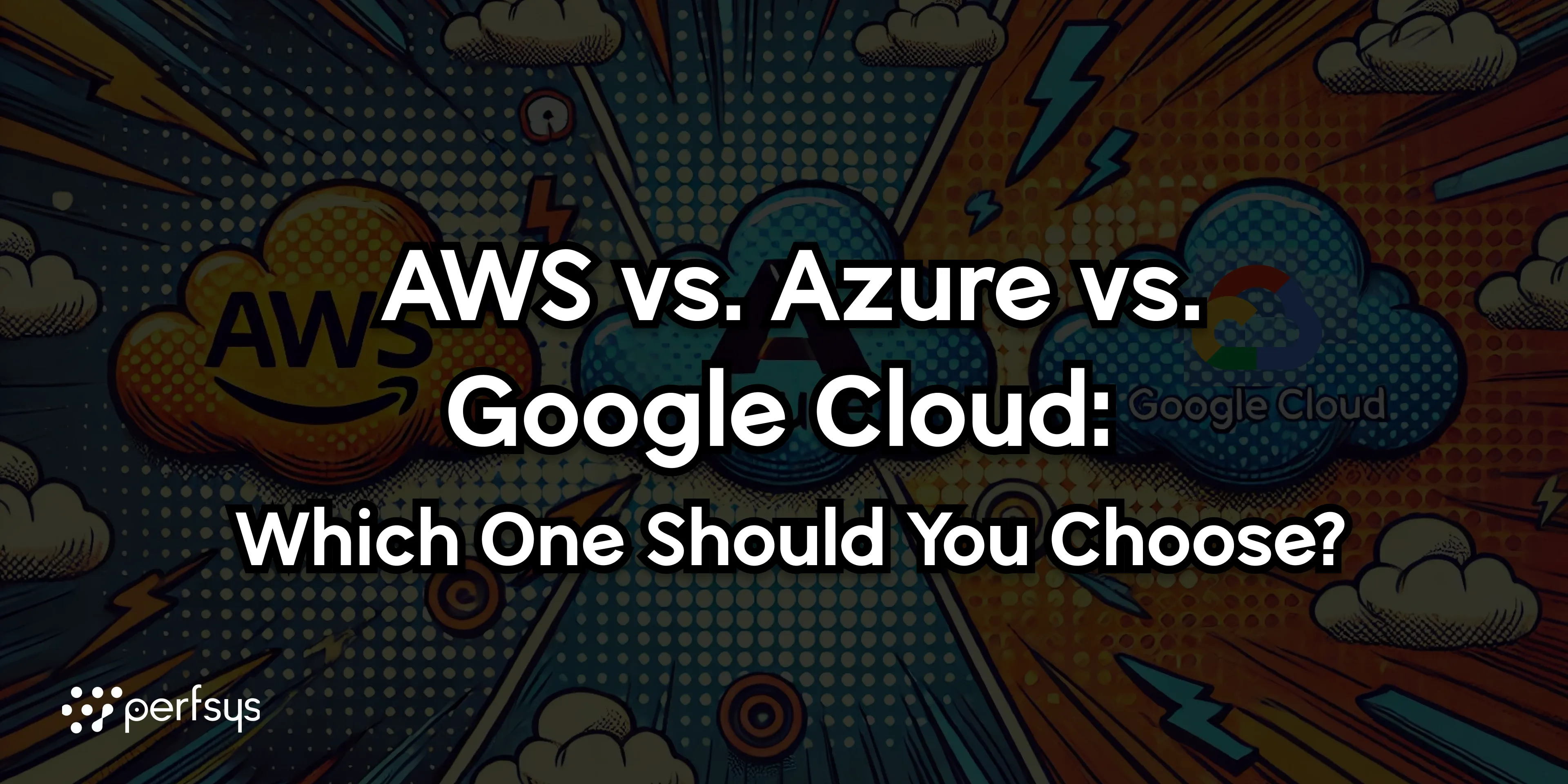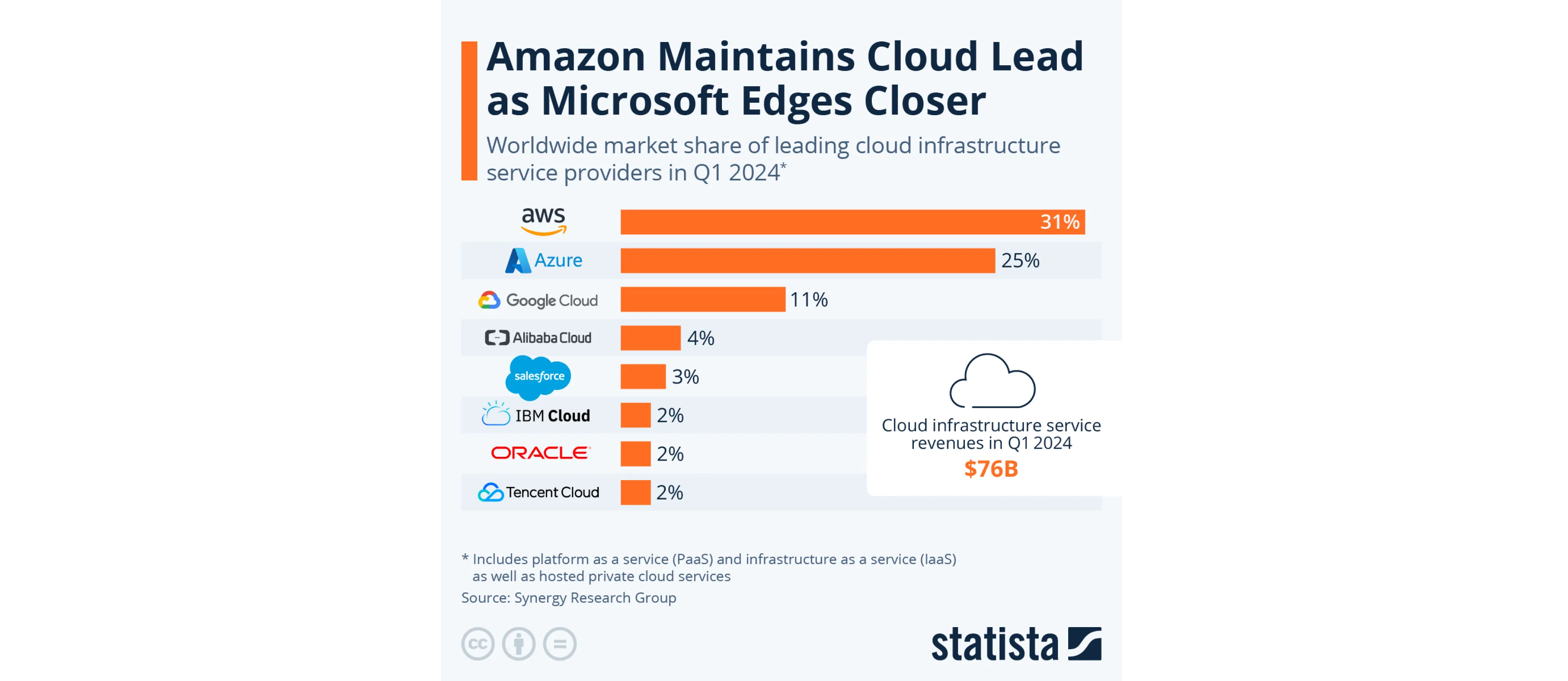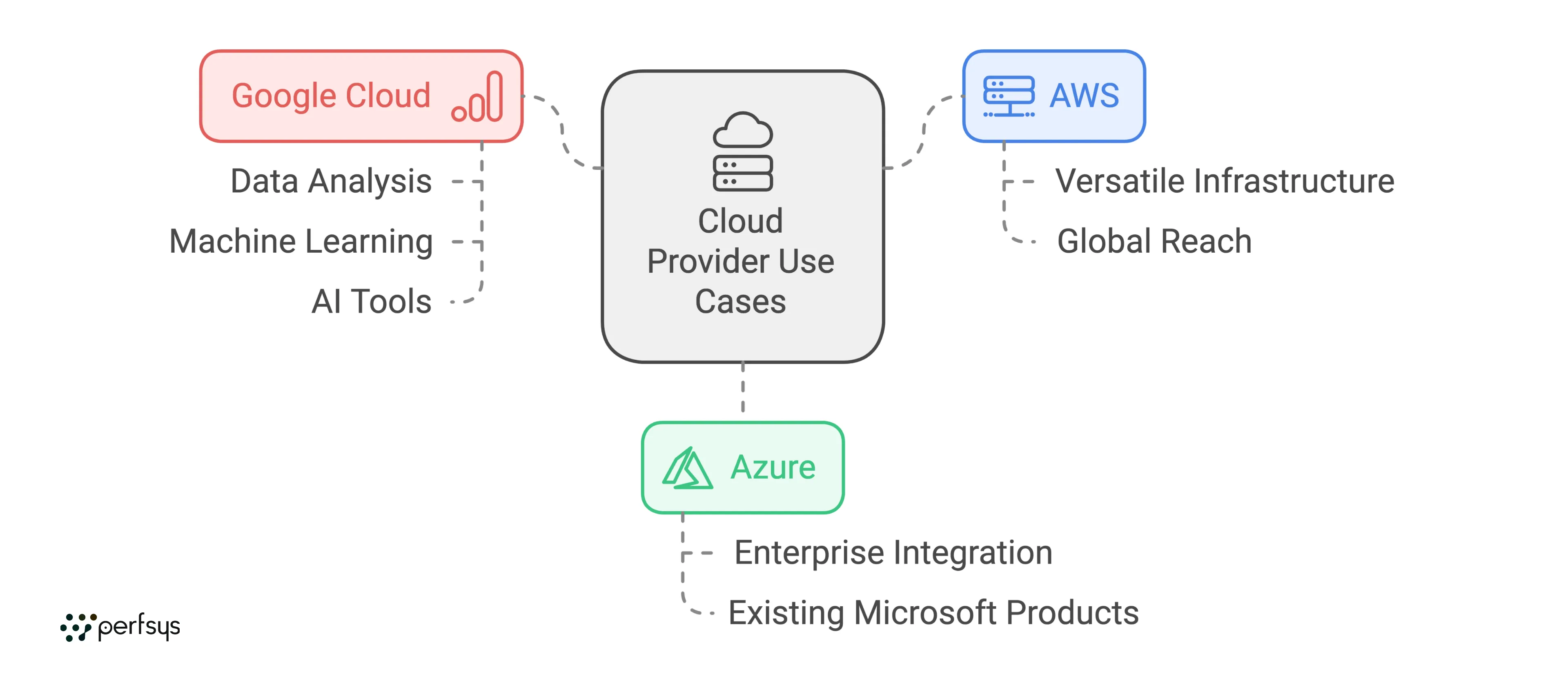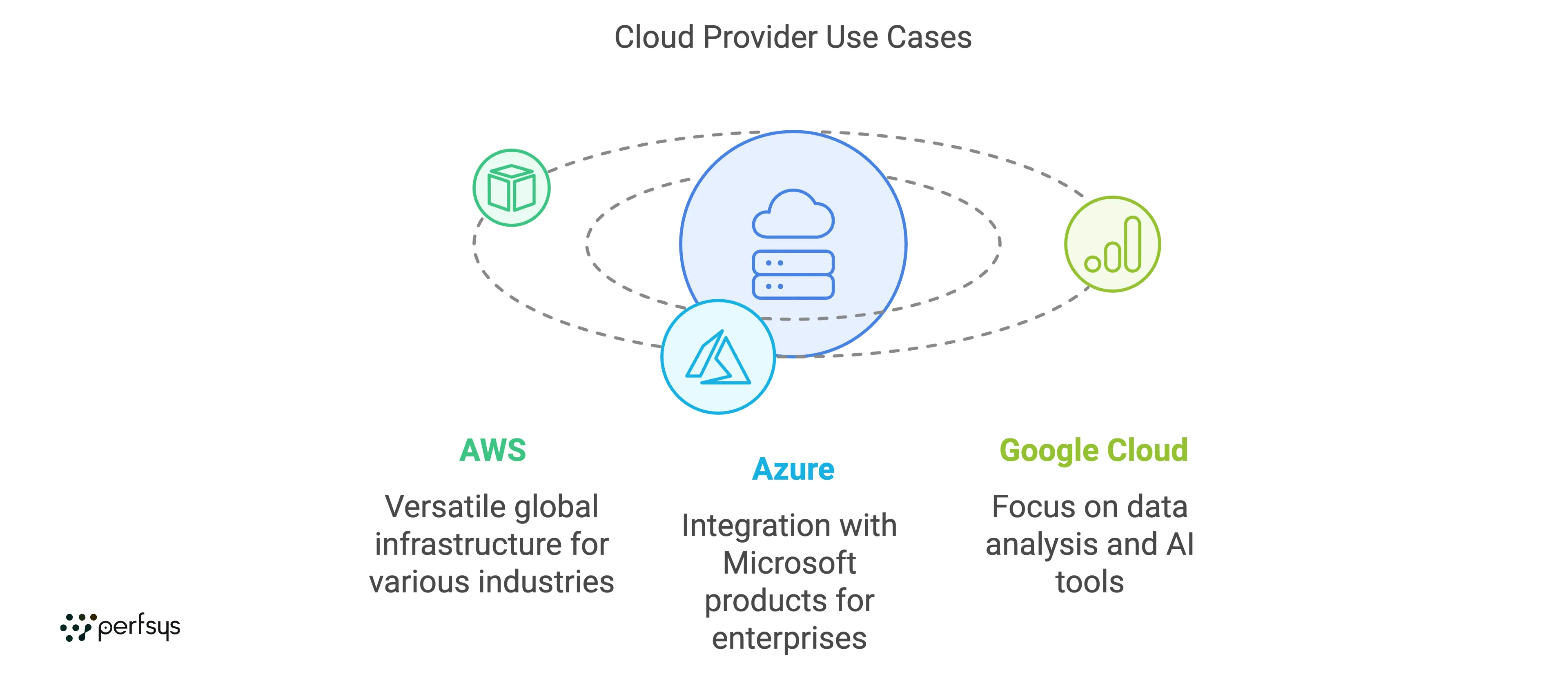AWS vs. Azure vs. Google Cloud: Which One Should You Choose?

With so many cloud platforms available today, it can be challenging to decide which one is best suited for your needs. AWS (Amazon Web Services), Microsoft Azure, and Google Cloud Platform (GCP) are the leading providers, each offering robust services and unique benefits. This guide breaks down the key differences to help you choose the right cloud provider.
Why Compare AWS, Azure, and Google Cloud?
Choosing the right cloud provider is crucial for businesses and developers alike. Each platform offers cloud computing essentials like storage, computing, and databases but varies significantly in pricing, services, and user experience.

Quick Comparison Table
| Feature | AWS | Microsoft Azure | Google Cloud Platform |
|---|---|---|---|
| ---------- | |||
| Market Share | Largest cloud provider globally | Strong in enterprise integration | Known for data analytics and AI |
| ---------- | |||
| Best For | Versatile services across industries | Hybrid cloud and Microsoft integration | Data-heavy applications and AI |
| ---------- | |||
| Strengths | Extensive service range | Integration with Microsoft products | Leading in AI and machine learning |
| ---------- | |||
| Pricing Model | Pay-as-you-go | Pay-as-you-go with Reserved Instances | Pay-as-you-go with Sustained Discounts |
| ---------- | |||
| Main Users | Startups to large enterprises | Enterprises using Microsoft products | Data-driven tech companies |
Key Differences Between AWS, Azure, and Google Cloud

1. Market Share and Popularity
-
— AWS: As the first major cloud provider, AWS holds the largest share of the cloud market. It’s known for its extensive service offerings and global reach.
-
— Azure: Microsoft’s cloud platform is a strong second in market share, popular with large enterprises and hybrid cloud setups due to seamless integration with Microsoft products.
-
— Google Cloud: While smaller in market share, Google Cloud is widely adopted by tech companies focused on data, AI, and machine learning.
2. Available Services
Each platform offers a wide range of services, but here’s a quick breakdown:
-
— AWS: Provides the broadest selection of services, from general-purpose computing (EC2) and storage (S3) to specialized tools for machine learning (SageMaker) and IoT (IoT Core).
-
— Azure: Known for its hybrid cloud capabilities, Azure has strong integration with Microsoft tools like Office 365, making it ideal for organizations already invested in Microsoft ecosystems.
-
— Google Cloud: Excels in big data, analytics, and AI services, with tools like BigQuery for data warehousing and TensorFlow for machine learning.
3. Pricing Models
Pricing in cloud computing can vary significantly. Here’s how each provider handles costs:
-
— AWS: Offers pay-as-you-go pricing, reserved instances for cost savings, and Spot Instances for temporary workloads at a discount.
-
— Azure: Also provides pay-as-you-go pricing with discounts for reserved instances and unique hybrid benefits if you already use Microsoft software.
-
— Google Cloud: Known for sustained-use discounts, which lower costs automatically for consistent usage, along with pay-as-you-go and committed use contracts for savings.
4. Best Use Cases for Each Cloud Provider
-
— AWS: Suited for a wide range of industries and applications. Ideal for startups to large-scale enterprises needing a versatile, global cloud infrastructure.
-
— Azure: Perfect for enterprises already using Microsoft products, looking to integrate with existing infrastructure.
-
— Google Cloud: Best for organizations focused on data analysis, machine learning, and AI, with a strong suite of analytics tools.
Frequently Asked Questions (FAQ)
1. Which cloud provider is cheapest?
Pricing depends on usage and specific service configurations. Google Cloud often offers better discounts for sustained use, while AWS and Azure provide savings through reserved and spot instances.
2. Which cloud provider has the best AI and machine learning services?
Google Cloud leads in AI and ML capabilities, especially with its tools like TensorFlow and BigQuery.
3. Which cloud platform is best for hybrid environments?
Azure is known for its strong hybrid cloud capabilities, integrating well with on-premises and other Microsoft services.
4. Which cloud provider has the most data centers?
AWS has the largest global infrastructure, followed closely by Azure, with both offering regions across most continents.

Conclusion
Choosing between AWS, Azure, and Google Cloud depends on your specific needs. AWS is the go-to for diverse service options and global reach, Azure is best for hybrid cloud setups and Microsoft integration, and Google Cloud excels in data and AI-driven applications.
Evaluate each platform based on your current technology stack, pricing needs, and business goals to make the best choice for your cloud journey.
